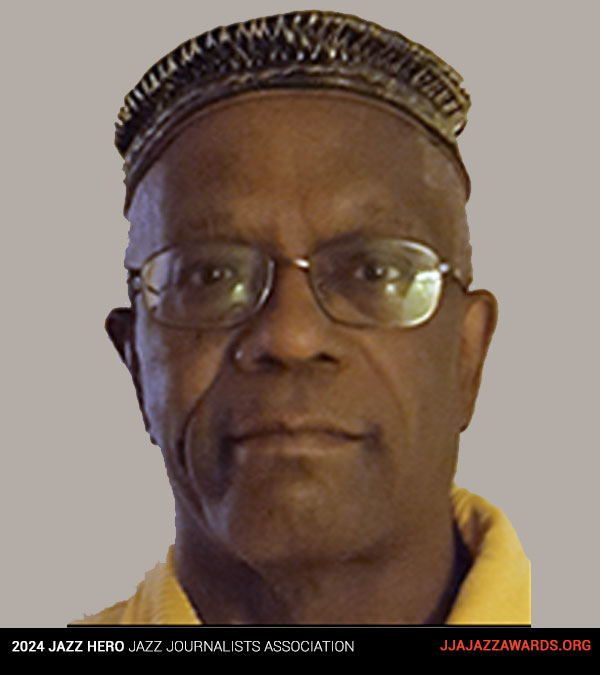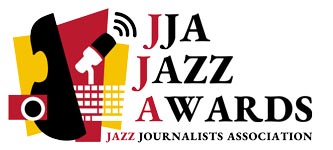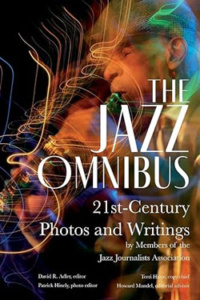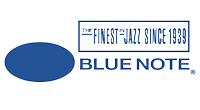Indianapolis Jazz Hero

Historian, educator and author David Leander Williams has arguably done more than anyone to research and present the proud heritage of Indianapolis’ Indiana Avenue, once the mainstream of the African-American community at the center of our most populous city and state capital. His career as an Indiana Avenue historian was sparked when he tried to help his niece find reference books detailing the district’s rich history, only to come away empty-handed.
“I became angry,” Williams told WRTV’s Marc Mullins in a 2023 interview. “I thought somebody should do something about this.” Then he realized: “I had to.”
Scholars can now consult Williams’ three volumes: Indianapolis Jazz: The Masters, Legends and Legacy of Indiana Avenue and Indianapolis Rhythm and Blues (Images of America) and African Americans in Indianapolis: The Story of a People Determined to Be Free. They provide vivid documentation of “the Harlem of Indy,” which from the 1920s through the ‘60s served as a major stop on the Chitlin’ Circuit, with venues ranging from ritzy African-American dinner clubs to down ‘n’ dirty dives where local folks and visitors from afar came to hear artists on tour and home-grown alike.
Indianapolis was segregated so Black artists couldn’t play in white venues, but white patrons were welcomed, Williams avows, in the city’s Black clubs. Jazz and blues masters such as Noble Sissle, Leroy Carr, the Montgomery Brothers Wes, Monk and Buddy, Leroy Vinegar, J.J. Johnson, Slide Hampton, Freddie Hubbard, Larry Ridley and James Spaulding emerged from the city’s “Black Broadway.”
Although Indiana Avenue was decimated by the expansion of Indiana University and highway development, the storied strip has been targeted for redevelopment since 1987, when it was granted historic district status. Plans remain in development, but Williams has assured that the culture and memories of a century are preserved for both devotees and those who’ve never heard of places like the Sunset Terrace Ballroom and the Pink Poodle, where music as foreground and background to life flowed.
An adjunct professor in Africana studies at Indiana University-Purdue University at Indianapolis, focused on African-American history, particularly slavery, Williams studied Spanish and Portuguese at Colorado State University and holds an MA in International Studies/Middle Eastern Affairs from Fairleigh Dickinson University. His books result from his decades of immersive research, interviewing people with direct memories of the era starting a century ago, seeking memorabilia and ephemera hands-on in resale shops, vintage stores, yard and garage sales. His books doesn’t focus on jazz exclusively; his perspective recalls that Indiana allowed slaveholding, was birthplace to a large chapter of the 20th century Klu Klux Klan, but also was home to the first Black American woman to become a self-made millionaire, Madame C.J. Walker.
Still, his scholarship always leads him to music and musicians. It comes naturally to him — Williams grew up a block from Indiana Ave., graduated from Crispus Attucks High School, and remembers the hot spots well. His father, an electrical sound engineer, was friends with guitarist Wes Montgomery, who David met around age 10. He recalls Montgomery as a nice man who stored the guitar he’d play on return visits to his home town in the Williams’ family’s cellar, atop “my gigantic speaker called Big Bertha.”
“He and my father would sit around and talk jazz and laugh and joke. Then they’d go down to Bar-B-Que Heaven on North Western (now called Martin Luther King) and come back and everybody would eat barbecue. After that, he would go out on our porch and serenade the entire community around 24th and North Western and 24th in Annapolis Avenue with his music.”
Fascinating memories that should not be forgotten — and won’t be, thanks to Jazz Hero David Leander Williams,
— Leslie Lynnton Fuller
JJA social media director
“The Jazz State of Indiana”, JazzRadioWETF.org















